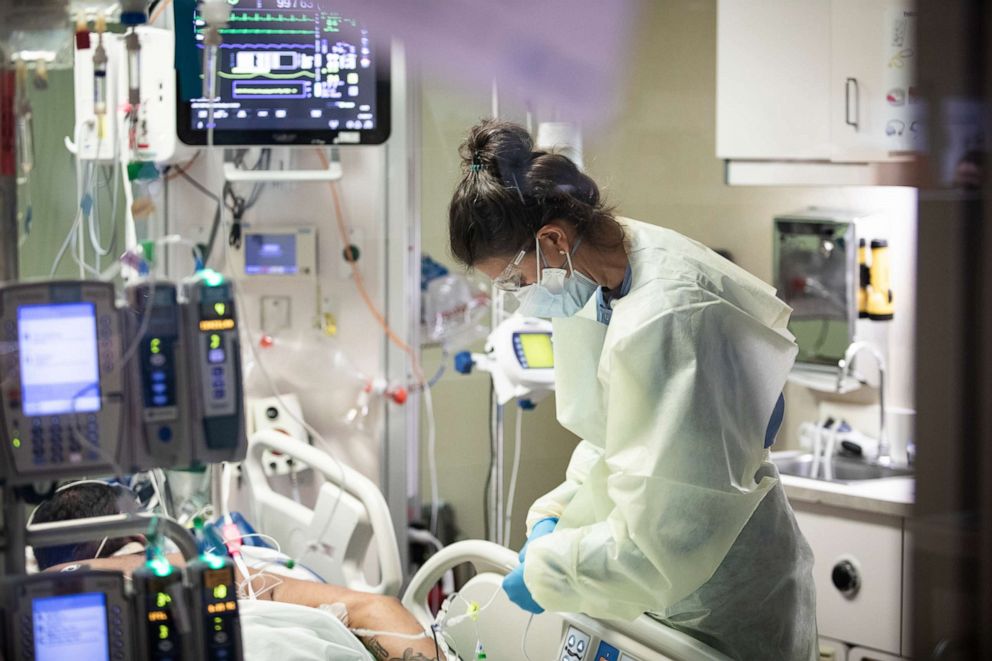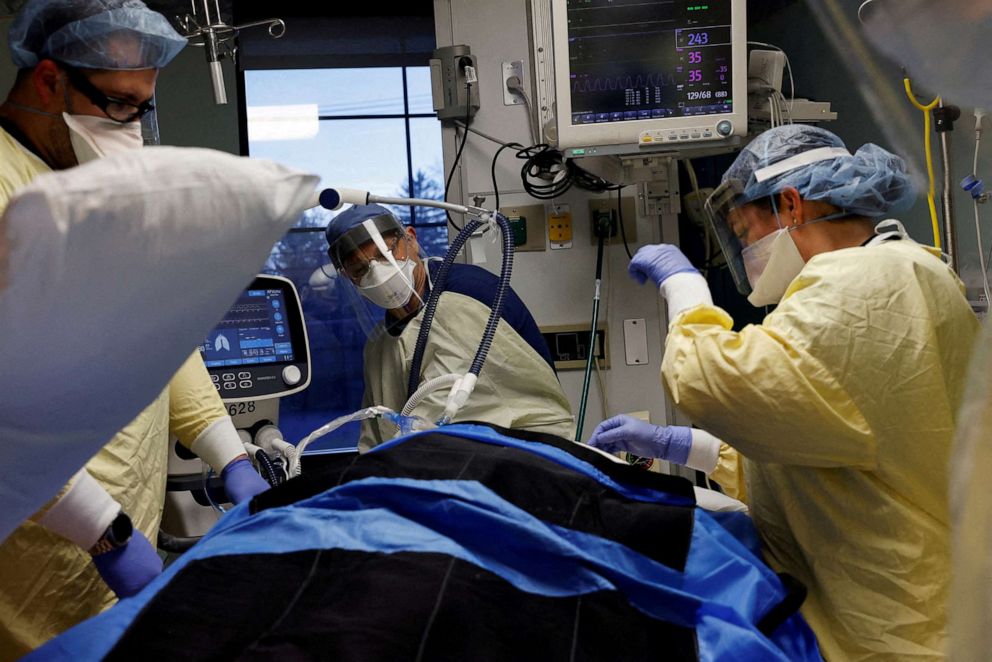Crisis standards of care activated in southern Idaho
Crisis standards of care have been adopted in much of southern Idaho, as hospitals grapple with a surge in COVID-19 patients.
The Idaho Department of Health and Welfare, citing severe staffing and blood supply shortages, activated crisis standards of care on Monday for the southwest, central and south central public health districts, which encompass 18 counties including the Boise, Nampa and Twin Falls metropolitan areas. Crisis standards of care provide legal and ethical guidelines for how health care providers should allocate scarce, life-saving resources, such as ventilators and intensive care unit beds, during an overwhelming public health emergency.
"The highly contagious Omicron variant has thrown us a curve ball," Idaho Department of Health and Welfare Director Dave Jeppesen said in a statement Monday. "Once again, the situation in our hospitals and health systems is dire -- we don't have enough resources to adequately treat patients."

It was the second time amid the coronavirus pandemic that the Idaho Department of Health and Welfare has activated crisis standards of care. Health care rationing was authorized in northern Idaho last September before being extended to the entire state 10 days later. The guidelines were fully deactivated by the end of December.
The latest activation came in response to a request from Saint Alphonsus Health System, which has hospitals in southwestern Idaho as well as eastern Oregon. Jeppesen convened Idaho's crisis standards of care activation advisory committee last Friday, and the committee recommended that the guidelines be activated statewide. Jeppesen decided to only make the designation for southern Idaho, but said other parts of the state will likely be added if current COVID-19 trends continue.
Jeppesen urged residents to get vaccinated and boosted against COVID-19 and to wear high-quality face masks in public places.
"Omicron is so much more contagious than previous variants, and even though a lower percentage of cases are ending up in the hospital, the record number of cases is still putting strain on our healthcare system," he said.






